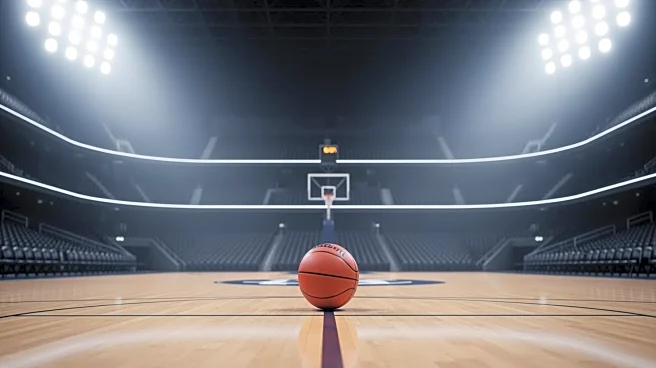What's Happening?
Tom Izzo, head coach of Michigan State, has publicly criticized the NCAA's decision to allow players from the NBA G League to join college basketball teams. This criticism was sparked by the commitment of London Johnson to Louisville after his stint in the G League.
Johnson, who was a top-50 prospect, played for the G League Ignite and later for teams like the Maine Celtics and Cleveland Charge. The NCAA's recent ruling has opened the door for players with professional experience to return to college basketball, a move that Izzo finds 'ridiculous' and 'embarrassing'. He expressed frustration over the lack of communication from the NCAA regarding this decision.
Why It's Important?
The NCAA's decision to allow G League players to transition to college basketball could have significant implications for the sport. It may change recruitment strategies and affect the development of college athletes, as teams might now compete with professional leagues for talent. This decision also raises concerns about the NCAA's governance and its ability to adapt to the evolving sports landscape, particularly with the influence of professional leagues and NIL legislation. Coaches like Izzo worry about the impact on existing college players who may face increased competition from older, more experienced athletes.
What's Next?
The NCAA may face pressure to clarify its policies and involve coaches and administrators in decision-making processes to ensure that the interests of college athletes and programs are adequately represented. The impact of this decision on recruitment and team dynamics will likely be monitored closely in the coming seasons. Further discussions and potential policy adjustments may be necessary as the NCAA continues to navigate the complexities of player eligibility and professional transitions.
Beyond the Headlines
This situation underscores broader issues within college sports, such as the balance between amateurism and professionalism, and the role of the NCAA in regulating these transitions. The decision could lead to increased scrutiny of the NCAA's policies and its ability to manage the intersection of college and professional sports effectively.















